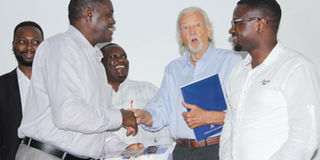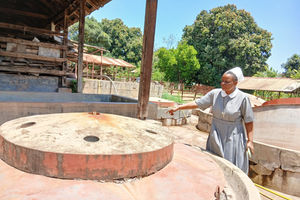Study: Review anti-graft body to improve its efficiency

Dar es Salaam. The government should review functions of the Prevention and Combating of Corruption Bureau (PCCB) with the objective of focusing on achievable goals of value to the public and that provide value for money, a new study suggests.
Recommendations of the study also suggest that the civil society should initiate a broad-based public debate on alternative approaches to corruption prevention and control from value-for-money, governance and human rights perspectives.
Dubbed, “A Review of the Performance of the Prevention and Combating of Corruption Bureau, 2007-2016”, the study aimed to examine the performance of the anti-corruption bureau in the last decade.
The study was commissioned by Policy Forum to four researchers; Mr Brian Cooksey of the Tanzania Development Research Group (TADREG), Mr Paul Mikongoti and Mr Fundikila Wazambi of Legal and Human Rights Centre (LHRC) and Patience Mlowe of the Tanganyika Law Society (TLS).
Presenting findings of the study yesterday, during the Policy Forum breakfast debate, (LHRC) programme officer responsible for research, Mr Fundikira Wazambi, said study reviews should be done in three areas: education, investigation and prosecution.
“The PCCB weaknesses and strengths in the area of education, investigation and prosecution should be reviewed and fixed to improve the bureaus efficiency,” said Mr Wazambi.
He added: “Review should also focus at strengthening collaborations with the civil society. For instance, public education on corruption could be left to civil society organisations with PCCB remaining with investigation, prosecution and coordination roles.”
He said the study that based on reports and media reporting has found that the general performance of the country’s anti-corruption body has declined because of various factors including; lack of focus on key activities and limited human resources. Other factors are increased mismatch between resources and objectives due to regional expansion of the PCCB and the low capacity to investigate and prosecute complex issues.
“Review should be done basing on the country’s limited resources supplied to the anti-corruption body,” he said.
The TADREG co-researcher, Brian Cooksey said an average of 6,000 cases were received by PCCB between 2007 and 2016 and that the number of files opened declined from 1,266 to 833, despite of nationwide expansion of bureau.
"The number of closed and transferred files fell during this period and the number of convictions rapidly rose after 2013 most of them involving petty offenses,” he said, adding, “Cases prosecuted formed a small fraction of reported and investigated cases and that convictions was remarkably low.”
For his part, co-researcher Mikongoti said during that period PCCB manpower increased from 200 to 2,000 amid nationwide expansion.
Mwalimu Nyerere Foundation (MNF) programme director Tom Nyanduga said Tanzania was ranked 103 position in terms of corruption according to the Transparency International Index 2017 after scoring 36 marks and that the country stood at the 17th position in Africa.
He said also the country has ratified many conventions related to anti-corruption.
"Being provided with $34 million annual budget according to the World Bank reports, PCCB efficiency was supposed to be higher instead of receiving only 6,000 annual cases because if the Commission for Human Rights and Good Governance managed to efficiently work under Sh1 billion annual budget what about the $34 million?” he questioned.
PCCB deputy director general Brigadier General John Mbungo said not all public institutions were delivering, wondering why such a study was carried on PCCB.
“Donors have been funding such studies in order to pass their agenda or tarnish the country’s image but prosecution faces huge challenges in collecting witnesses especially from foreign countries,” he said in a telephone interview.




